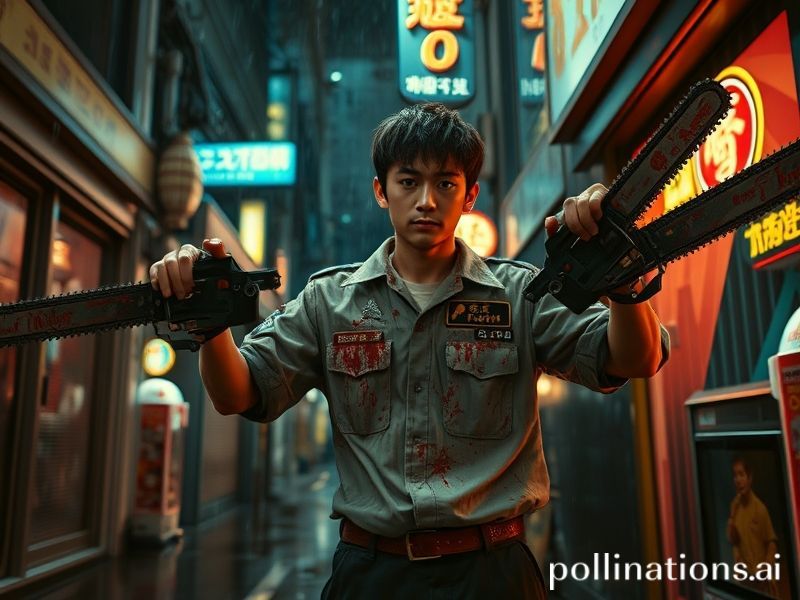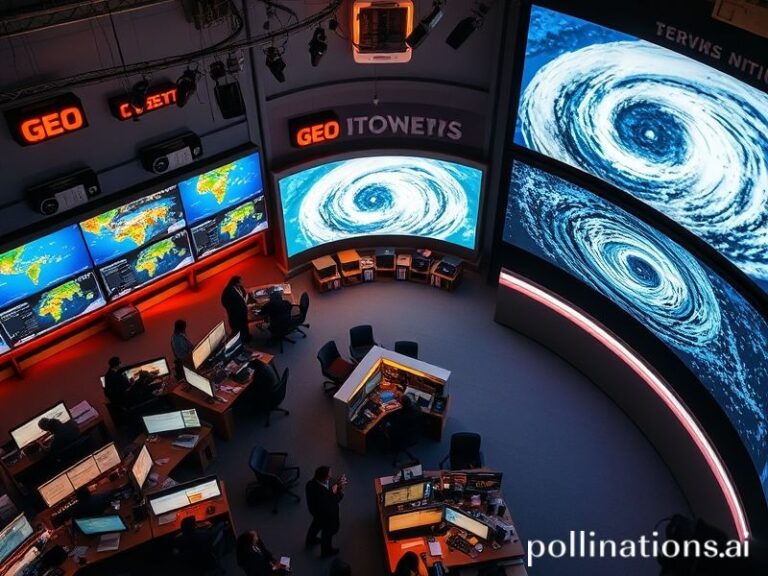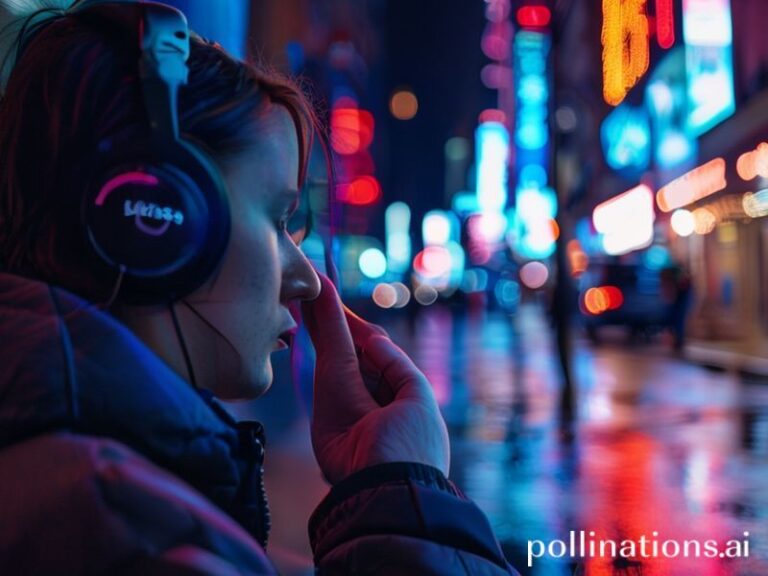Chainsaw Diplomacy: How One Anime Movie Became the World’s Bleak Therapy Session
The Chainsaw Man Movie, announced last week by MAPPA with the sort of ceremonial gravitas normally reserved for papal conclaves or new iPhone releases, is already being parsed by the planet’s chattering classes like an intercepted diplomatic cable. From Lagos to Lisbon, fans are asking the same question: will a film about a teenage devil-hunter who sprouts chainsaws from his cranium finally redeem 2024’s collective cinematic hangover, or merely add another layer of irony to an era that has made nihilism fashionable and sincerity suspicious?
Globally, the timing is exquisite. As COP28 delegates in Dubai burn jet fuel to debate carbon ceilings, Denji’s gasoline-powered cranial accessories feel like a prophetic punchline—humanity literally weaponizing combustion. Meanwhile, the World Bank frets over stagflation, TikTokers cosplay economic collapse for clout, and a Japanese cartoon property about grinding poverty and blood-soaked camaraderie is being pre-sold to 87 territories. If that isn’t late-stage capitalism performing stand-up, what is?
International distributors, ever the sober vultures, smell blood in the water. Sony Pictures has already booked IMAX screens in 42 countries, betting that visceral gore translates better than dialogue. (Subtitling costs plummet when half the script is “VROOOM!” and “SPLAT!”) In South Korea, pre-sale tickets moved faster than kimchi at a K-pop fan meet, while German exhibitors—ever punctual—scheduled midnight screenings so the chainsaws can roar precisely as their energy-price curfew kicks in. Even France, which still insists on cultural exception for Mickey Mouse, has granted the film an art-house subsidy, presumably on the grounds that existential despair is très français.
The soft-power implications are delicious. Japan, long accused of exporting only deflation and used panty vending machines, now weaponizes trauma in 4K. Analysts in Brussels whisper that Chainsaw Man could do for Cool Japan what Godzilla once did for post-war soft power—only this time the monster is inside the boy, which feels more honest. Washington, ever alert to narrative threats, has already convened a quiet inter-agency panel to determine whether Denji’s class resentment qualifies as “extremist content” under the PATRIOT Act’s anime annex. (It doesn’t, yet.)
Meanwhile, the global labor market braces for impact. Indonesian animators, subcontracted three layers deep, are pulling 22-hour shifts to render intestines at 24 frames per second—an occupational hazard now euphemized as “passion overtime.” In Mexico City, bootleg merch stalls are pre-stretching elastic waistbands on Pochita plushies, confident that nothing says Christmas like a smiling chainsaw-dog that can also store your fentanyl. And somewhere in a WeWork in Bangalore, an MBA is pitching “DevilCoin,” a blockchain that rewards viewers for every scream, because if you’re going to monetize trauma, you might as well decentralize it.
Of course, the real international subplot is the audience itself. Gen Z viewers from São Paulo to Stockholm see in Denji’s bargain-basement dreams—touch a breast, eat toast with jam—a mirror to their own gig-economy aspirations. Older millennials, still lugging the psychic chainsaws of 2008 austerity, nod grimly at the metaphor: sell enough pieces of yourself and maybe, just maybe, you’ll afford a down payment on a soul. Even Chinese censors, notorious for blurring skulls lest citizens remember mortality, are reportedly allowing the film with strategic pixelation, proving that authoritarianism can tolerate chainsaws so long as they don’t point at the Party.
As the release date revs closer, one truth slices through the marketing haze: in a world where real dismemberment streams nightly from Gaza and grainy cartel TikToks, fictional carnage offers a quaint, almost consensual violence. We queue for catharsis, popcorn in hand, eager to watch a boy disassemble demons while our own economies dismantle themselves with quieter, duller blades. And when the credits roll and the theater lights flick on, we’ll file back into the night, pockets slightly lighter, hearts slightly heavier, comforted by the knowledge that at least our heads remain firmly unattached to starter cords.
For now.







